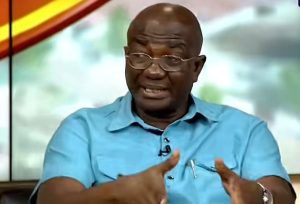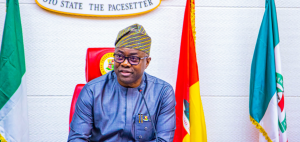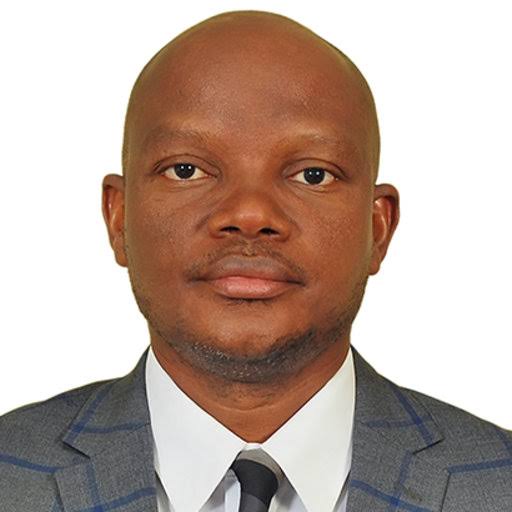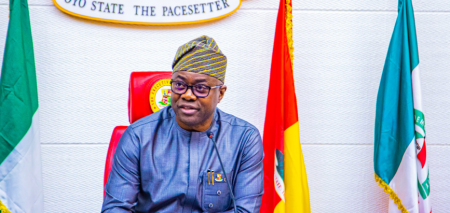The Plight of Nigerian Universities: A Conversation with ASUU President
The state of Nigerian universities has been a subject of ongoing concern, marked by persistent challenges ranging from inadequate funding and poor infrastructure to the brain drain of academic staff. Professor Chris Piwuna, the new President of the Academic Staff Union of Universities (ASUU), recently shed light on these issues, emphasizing the Federal Government’s role in the ongoing crisis. Central to the discussion is the unfulfilled 2009 agreement between ASUU and the government, a document meant to address the core problems plaguing the sector. Prof. Piwuna argues that the government’s consistent disregard for this agreement is a major contributor to the declining state of Nigerian universities. The failure to review and implement the agreement, coupled with ad-hoc and short-sighted policies, has exacerbated the challenges faced by universities and their staff.
The 2009 agreement, according to Prof. Piwuna, tackles critical aspects of university life, including funding, staff remuneration, and governance. The lack of consistent and adequate funding has crippled research initiatives and hindered the ability of universities to provide quality education. The inadequate remuneration of academic staff has led to a demoralized workforce and fueled the brain drain phenomenon, as qualified professionals seek better opportunities abroad. Furthermore, the interference in university governance, exemplified by the arbitrary removal and replacement of governing councils, has created instability and hampered effective administration. Prof. Piwuna highlights the need for a long-term, strategic approach to addressing these problems, criticizing the government’s tendency towards short-term, politically motivated solutions. He argues that sustainable development in education requires consistent investment and policies that transcend political cycles.
The threat of strike action looms large in the ongoing struggle between ASUU and the government. Prof. Piwuna emphasizes that strike action is a last resort, a tool employed only when all other avenues for dialogue and negotiation have been exhausted. He insists that ASUU’s primary goal is not to disrupt academic activities but to draw attention to the critical issues affecting the education sector and push the government to fulfill its commitments. The union’s repeated warnings and appeals for dialogue have largely been met with silence, further highlighting the government’s seeming indifference to the plight of universities. Prof. Piwuna underscores the importance of media engagement in raising public awareness about the issues and holding the government accountable for its inaction.
Prof. Piwuna also addressed the government’s recent initiatives in the education sector, including the Nigerian Education Loan Fund (NELFUND) and the discontinuation of the Bilateral Education Agreement scholarship scheme. He expressed reservations about the effectiveness of NELFUND, arguing that providing loans to students in a struggling economy adds an unnecessary burden. He suggested that the funds allocated to NELFUND would be better utilized as scholarships or grants, directly benefiting students and contributing to the financial stability of universities. The discontinuation of the Bilateral Education Agreement scholarship scheme was also criticized as a short-sighted decision that undermines the internationalization of education and limits opportunities for Nigerian students to gain global perspectives.
The issue of funding remains a central concern. Prof. Piwuna reiterated the importance of the 2009 agreement as a roadmap for addressing the funding crisis in universities. He called on the government to revisit the agreement and engage in meaningful dialogue to find sustainable solutions. The recent controversy surrounding the distribution of earned academic allowances highlights the need for transparency and fairness in the allocation of resources. While ASUU has reached an understanding with the government regarding the distribution formula, Prof. Piwuna emphasized the need for open communication and adherence to agreements to avoid further disputes.
Addressing the emergence of the Congress of University Academics (CONUA) as a parallel union, Prof. Piwuna downplayed the significance of the division, characterizing it as a family matter that would eventually be resolved. He emphasized the importance of unity within the academic workforce and expressed confidence in the ability of ASUU and CONUA to find common ground. Finally, Prof. Piwuna addressed the issue of cultism in universities, attributing its persistence to the challenging economic conditions in the country. He stressed the importance of early identification and intervention by school authorities to address the root causes of cultism and provide support to vulnerable students. He also emphasized the link between insecurity in the broader society and the prevalence of cultism within universities, suggesting that addressing socio-economic challenges is crucial to curbing this menace.
In conclusion, the interview with Prof. Piwuna paints a bleak picture of the state of Nigerian universities, characterized by chronic underfunding, inadequate infrastructure, and a demoralized workforce. The government’s failure to implement the 2009 agreement and its tendency towards short-term, politically driven solutions have exacerbated the challenges facing the sector. Prof. Piwuna’s call for renewed dialogue, adherence to agreements, and a long-term strategic approach to educational development offers a glimmer of hope for the future of Nigerian universities. The ongoing struggle between ASUU and the government underscores the urgent need for meaningful action to address the deep-seated problems plaguing the education sector and ensure a brighter future for Nigerian students and academics alike.













